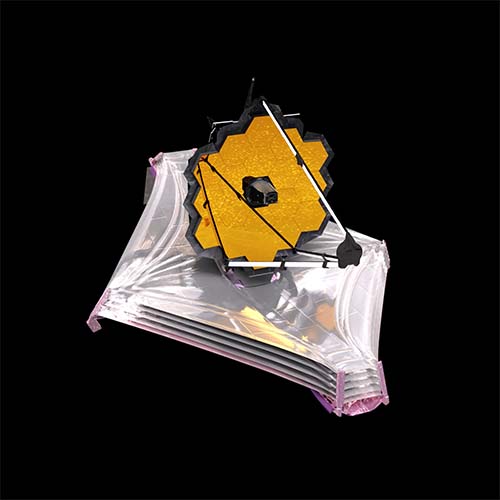
The James Webb Space Telescope launches astronomy into a new era

Physics World Stories Podcast
Shownotes Transcript
After decades in the making, the James Webb Space Telescope) (JWST) finally launched on 25 December 2021, ushering in a new era for astronomy. On Monday the $10bn mission reached its destination, the L2 Lagrange point 1.5 million kilometres from Earth, where it will remain in orbit throughout the mission.
In this episode of the Physics World Stories podcast, Andrew Glester meets JWST scientists to recall their experiences of the mission launch and the telescope’s journey so far. Now, the researchers are looking ahead with excitement to the science programme, which gets under way in June or July.
Jonathan Gardner), the JWST’s deputy senior project scientist, describes the fierce competition among astronomers to win time to use the state-of-the-art telescope. Gardner’s own research in deep surveys will benefit as the JWST can peer back to some of the first galaxies to form after the Big Bang.
Joining Gardner on the podcast is Stefanie Milam), the JWST’s deputy project scientist for planetary science. Milam describes how the telescope will explore the watery moons of Europa and Enceladus within our solar system, as well as investigating the atmospheres of exoplanets in search of intriguing chemical signals.
Find out more about the JWST mission in this feature article) by Keith Cooper, originally published in the January issue of Physics World.
